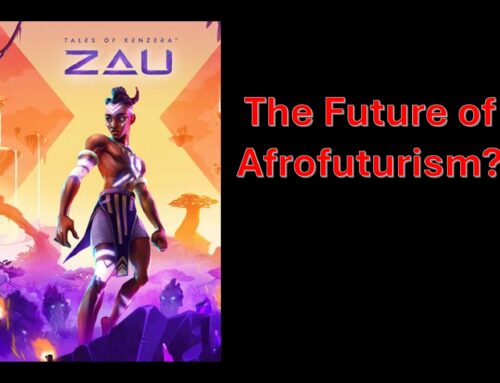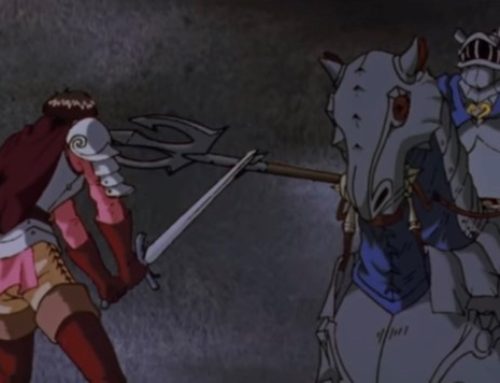I’ve heard it said that a lot of fantasy worlds are little more than the modern world with a different coat of paint. The cultural attitudes are treated the same, there are similar racial demographics, and even the general beliefs people have about the world around them is identical to those of modern people. Sometimes this makes it easier for someone from the real world who has been isekai’d into the new fantasy place to adjust to the rules of this new realm, and on occasion it can be justified by the inclusion of elements like magic that might make up the difference, but more often than not, the real reason is laziness on the part of the author. What’s even worse is when a historical setting is treated this way, with women in Medieval Europe expected to embrace feminism, Vikings portrayed as racially diverse, and American Comanche warriors complaining about first world problems.
The opposite problem pops up in any story set in a futuristic period where modern issues are still being played out with absolutely zero change hundreds of years into the future. That’s not to say that things couldn’t regress in the future; history is filled with a number of issues that have swung back and forth like a pendulum. But it doesn’t make sense that the problems we have today would be stagnant for hundreds of years, to the point that people in space colonies are dealing with the exact same issues with no differences.
In general, culture shapes technology, and technology shapes culture. Part of the reason smartphones and iPads exist is because people were impressed with the communicators and other technology on Star Trek. At the same time, the automobile made transportation and commuting longer distances more affordable and lead to the suburb, which in turn lead to a critical part of the cultural shift of the 1940s and 50s.
While I don’t believe every author should predict the traffic jams that would ensue from the invention of automobiles, I do believe that at the very least, authors should come to understand why cultural attitudes of the modern world didn’t show up in earlier eras, and how culture impacts what scientists research.
For starters, researchers and engineers are always looking to make their inventions and products marketable. This is why cars used to have tail fins; not because they were particularly aerodynamic, but because people thought they were cool in the 50s. The aforementioned iPad really only exists (as a larger version of the iPhone) because Apple realized that people would like to have tablets like the one Captain Picard reads from on the Enterprise. A lot of modern technology is built around chasing similar fads, and this isn’t new.
If you ever get a chance to see an old marketplace that’s still being preserved for historical reasons, chances are you’ll find an armory or similar shop selling armor, wherein the signs above the door might feature a knight slaying a dragon and rescuing a damsel. This was actually a form of advertising; the sign was saying: “if you wear our armor and use our weapons, you’ll be able to slay anything from bears to dragons and attract all the fair maidens.”
As for culture, here’s an unfortunate fact for feminists: most jobs throughout history required extreme amounts of heavy physical labor. If you didn’t have the kinds of muscles that usually come with being a man, there were very few jobs available to you. The reason the world’s oldest profession is so universal is because it was the one thing women could always fall back on, even if they couldn’t push a plow or work in a mine.
You might be thinking, “oh, the woman doesn’t need to push the plow. She just steers while an ox or other beast of burden drags it along.” That’s only if she can afford a beast of burden. Most serfs throughout history could not.
Now, if the woman is of a higher class, she might be able to hire workers to operate her farm, and she might uphold a management position over a larger plantation. If she was raised by wealthier parents, she might be able to afford an education. But there is another issue: sanitation. This is the ugly truth about history most women would rather not think about, but women had a huge problem with sanitation that showed up once a month, and prior to the invention of and widespread availability of the kinds of products we have today, this issue was a major cultural problem. Entire religions believed (and some still do) that women were inherently less clean than men because of this monthly problem, and that shaped what occupations they were allowed to hold. And you can’t just say that these beliefs were completely unfounded, because there is a genuine issue of blood attracting things like flies and germs. It doesn’t matter if the Greeks didn’t know why people who touched blood usually got sick; what matters is that people knew what happened if you did touch blood.
Many of the institutions that used to ban women for this reason, such as medical professions, have revoked these restrictions due to the fact that technology has eliminated the problem of sanitation. This in turn led to more women applying their perspective to medical science, which resulted in medicine meant to assist women becoming tailored better for female bodies. You cannot expect someone living in the Middle Ages to hold an attitude that women should have access to these areas when they don’t have the sanitation technology to do that safely.
Now, it is worth noting that there have been periods of time in history that reflected upon the modern world. Ancient Rome had a women’s rights movement. The Athenian Empire also had a women’s rights movement. The Babylonian Empire had something similar. Meanwhile, the Persian Empire, Parthian Empire, and Sassanid Empires were multi-ethnic, and struggled with difficulties that different racial groups following different pantheons of gods would bring. If you really want to have modern issues reflected in a different setting, especially a fantastic or historical setting, spend some time researching how these issues played out in these different eras. Find out what was similar, what was different, and why.
And for crying out loud, don’t depict a hunter-gatherer tribe in North America with a young girl who holds modern views on politics. Unless it’s meant to be a comedy, women in hunter-gatherer tribes should not be pushing for universal healthcare.





